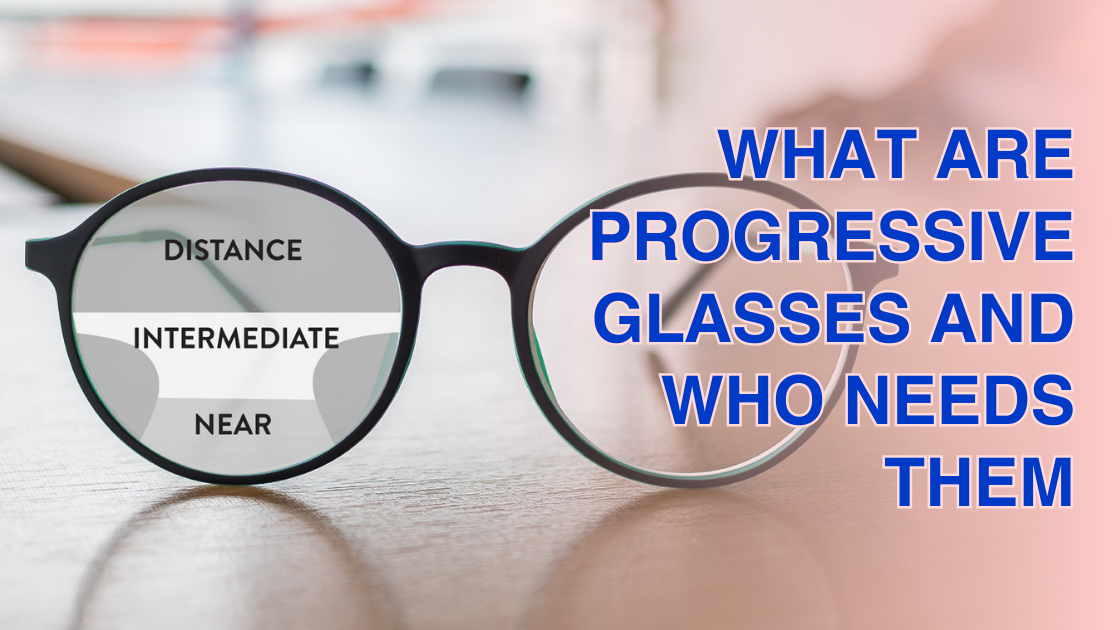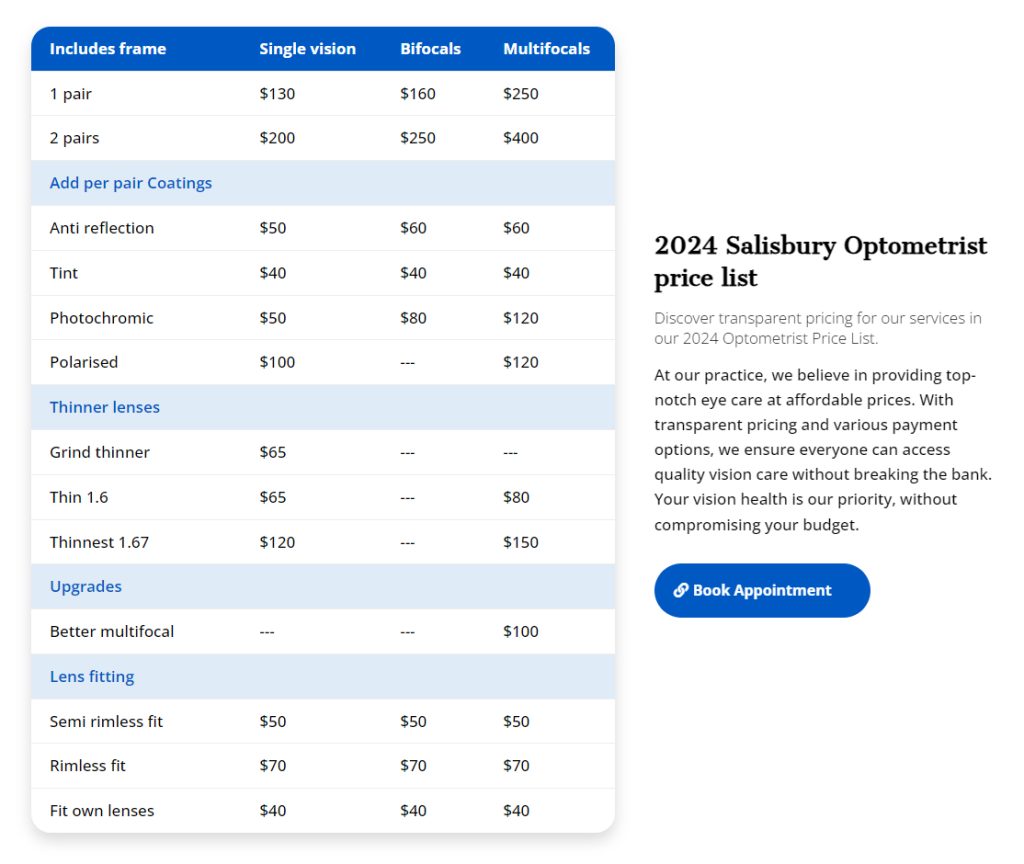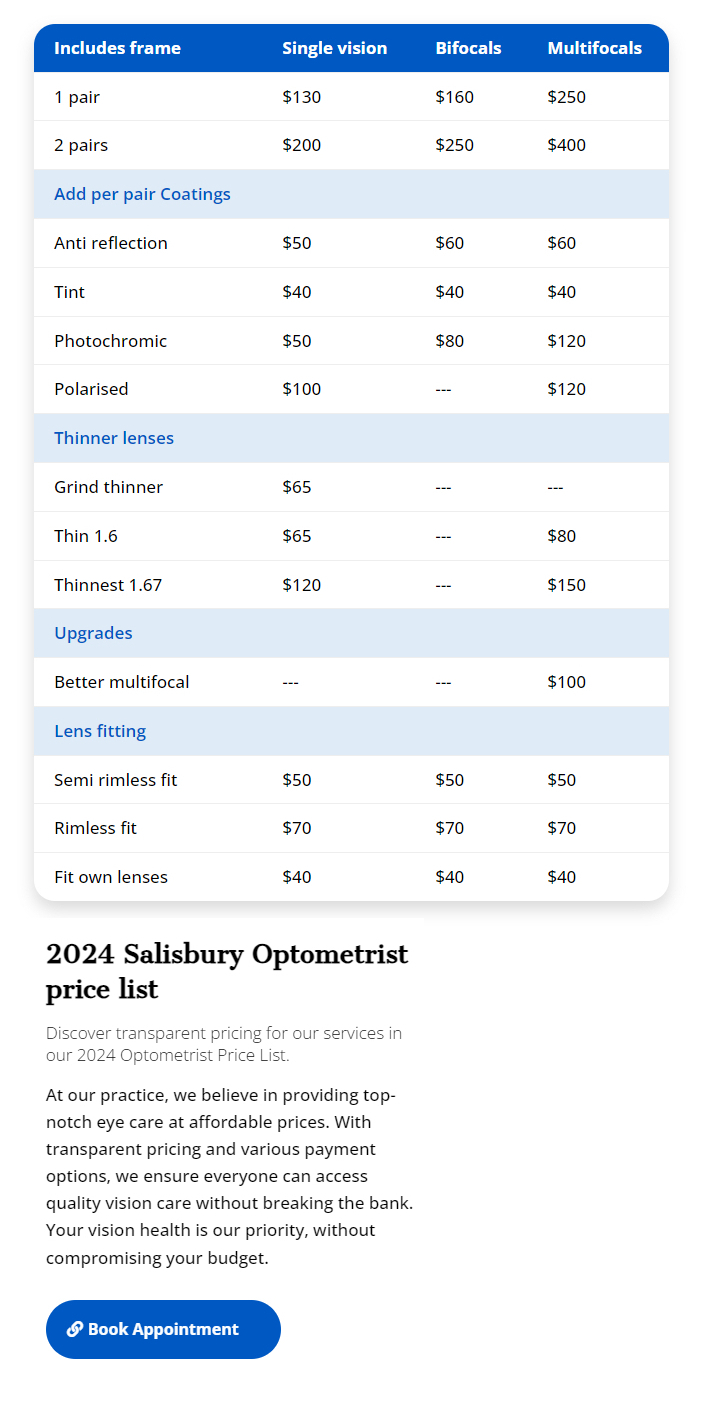Similar to the other organs that are a part of your body, the condition of your eyes, too, can deteriorate with age. Many people above the age of forty may start to experience difficulty focusing on things in front of them or reading small prints. Progressive glasses are known to be highly effective in minimising the impact of deteriorating eyesight on your daily life. In this blog post, we will explore what progressive glasses are, the benefits of using progressive glasses, and who needs them.
What are Progressive Glasses?
Progressive lenses combine three prescriptions in one pair of glasses. This allows you to do close-up, middle-distance, and distance viewing tasks without any additional strain on your eyes.
- Close-up work: Reading books or magazines, writing, sewing, etc.
- Middle-distance work: Working on a computer, reading small print or from a short distance, etc
- Distance-viewing: Driving, watching television, watching movies at the movie theatre, etc.
Progressive glasses are sometimes also called multifocal lenses and are an upgraded version of bifocal and trifocal lenses. Progressive spectacles have a seamless look as opposed to the telltale lines that are visible in bifocal and trifocal lenses.
What are The Benefits of Progressive Glasses
Progressive glasses provide a seamless transition between three prescriptions and countless other benefits, including:
- Rather than carrying three different pairs of spectacles, you can carry just one, as it provides clear vision at short, middle, and long distances.
- The absence of lines in progressive lenses minimise the “image jump” your eyes may experience, shifting from one lens to another in a short span of time. This is especially helpful when driving, allowing for smooth transitions between the dashboard, road, and distant signs.
- The seamless look of progressive lenses gives you a more youthful appearance than bifocals or trifocals that tend to age you.
A professional optician can help you choose a suitable progressive lens brand and design that is compatible with your eyeglass prescription and unique visual requirements. They can also provide helpful suggestions on how to quickly adjust to your new progressive lenses and maintain your eyeglasses for clear vision. Additionally, to achieve the best clarity, comfort, and protection in all lighting conditions, inquire with your optician about adding anti-reflective coating and photochromic lens treatment to your new progressive glasses.
Who needs Progressive Glasses?
Progressive glasses are a great option for anyone with short, middle, and long-distance vision problems. However, they are most commonly used by people over the age of 40 who have presbyopia, also known as farsightedness. Presbyopia causes vision to blur while doing close-up work like reading, writing, sewing, etc. Progressive lenses are also used for children to prevent myopia or near sightedness from deteriorating.
Consult a trusted eye specialist such as Salisbury Optometrist to see if you need progressive spectacles.
Tips for Adjusting to Progressive Lenses
While progressive glasses are a phenomenal option for people suffering from impaired vision, they can take a while to get used to. Here are some tips to make adjusting to progressive lenses easier:
- Choose a reputed optical shop such as Salisbury Optometrist to help you pick a good frame and ensure the lenses are perfectly centred over your eyes. Poorly fitted progressives are a fairly common issue for people being unable to adapt to new glasses.
- Understand that it can take anywhere between one to two weeks to adjust to progressive glasses. Some people may need up to a month to adjust to them.
- Be sure to thoroughly follow your eye doctor’s instructions on how to use them.
- Wear your new lenses as often as possible and avoid wearing your other glasses to make the adjustment quicker.
Conclusion
In conclusion, progressive glasses are an excellent solution for people with short, middle, and long-distance vision problems. They are most commonly used by people over the age of 40 who have presbyopia, but can also be used by children to prevent myopia from deteriorating. Progressive glasses provide a seamless transition between three prescriptions, making it easier to carry and use one pair of glasses instead of three. However, it is essential to consult a trusted eye specialist to determine if progressive glasses are right for you. With proper fitting and adjustment, progressive glasses can significantly improve your vision and make daily tasks easier and more comfortable.




0 Comments